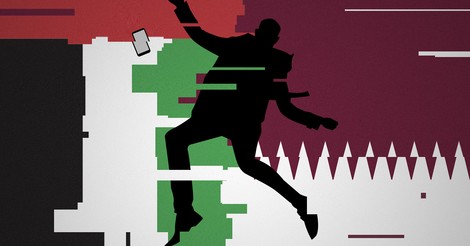Your podcast discovery platform
Curious minds select the most fascinating podcasts from around the world. Discover hand-piqd audio recommendations on your favorite topics.

piqer for: Globalization and politics Global finds
I am an Australian freelance journalist focussing on conflicts, politics, and warzones around the world. I have been working as a journalist for over 5 years, having reported from Australia, Germany, China, Egypt, Palestine, and Ukraine. I am especially interested in the way that new technologies are being used in conflict zones in unexpected and often disturbing ways. During my time working as a journalist, I also co-founded open-source war reporting site Conflict News.
How Persian Gulf Rivals Turned US Media Into Their Battleground
In an era of disinformation and social media filter bubbles, it is even more important that the media is able to independently report facts. Increasingly, even well-intentioned publications are finding their reporting efforts being hijacked by a range of foreign powers. With wide reach, and often significant ability to impact politics, the media is an especially powerful tool for use by foreign powers and non-state actors.
However, while we hear a lot about fake news and outright lies being spread by unscrupulous websites, what we hear less about is how real news can be used by nation states for political gain. These days, journalists often come into possession of information that is both verifiable and newsworthy, but also originates from a dubious source, possibly connected to an intelligence agency or hacker group. The journalist is obliged to report, but they likely also know they are being manipulated.
Through his investigation with Buzzfeed News, Kevin Collier breaks down this ethical dilemma and shows how the Gulf states of UAE and Qatar are exploiting it for their own benefit. He shows how both countries are leaking stories to the US media in an underhanded fashion, with obvious political objectives. In doing so, he raises questions about how authoritarian states can exploit the machinery of liberal democracies for their own nefarious objectives.
Should this prompt a change in media ethics? Or should we accept that, as journalists, we are merely a conduit for information sent from above (or below)?
